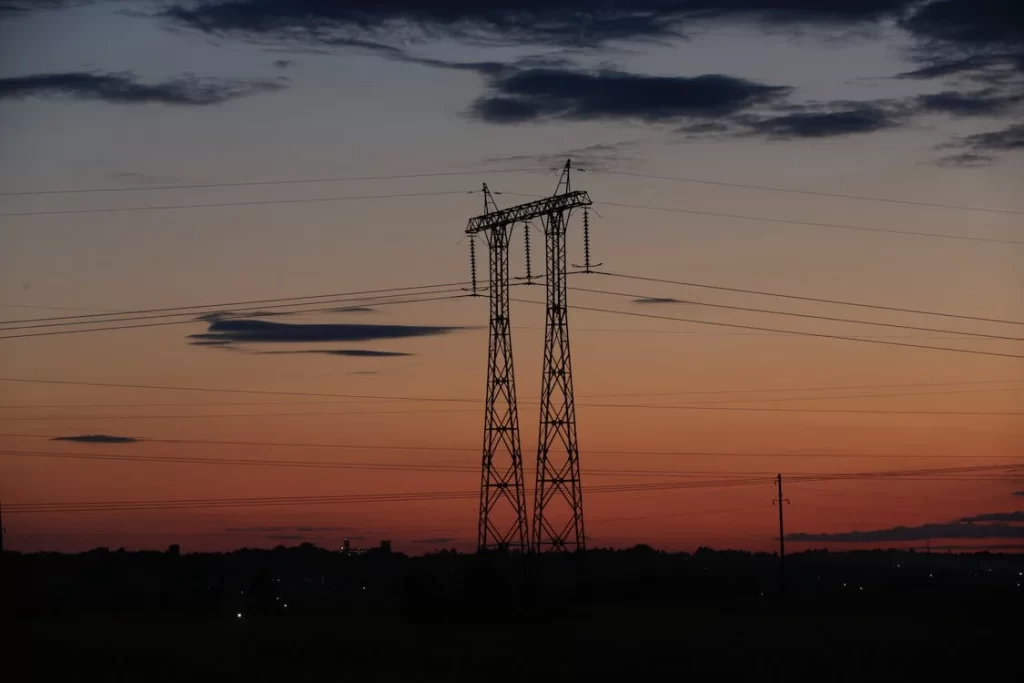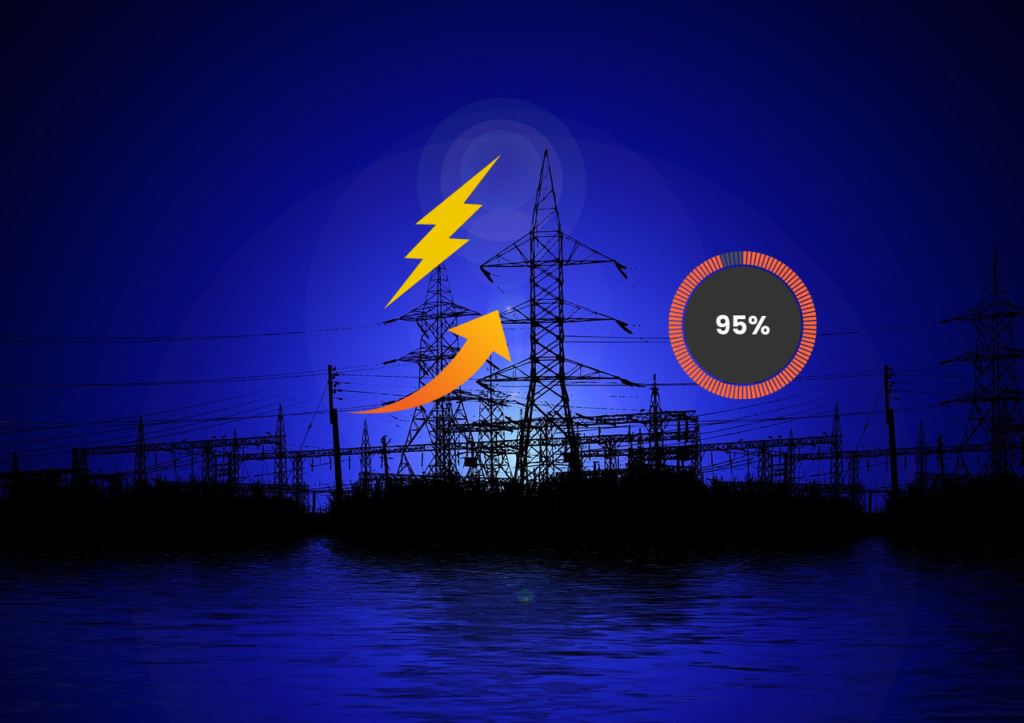Navigating the Power Grid: Careers in Grid Operations
The electrical grid is the backbone of modern society, silently powering our homes, businesses, and industries. Behind this intricate web of high voltage power lines, substations, and transformers lies a dynamic world of professionals who ensure that the lights stay on, and our lives continue to run smoothly. If you’re intrigued by the idea of working in a field that combines technical expertise, problem-solving, and a direct impact on society, then a career in grid operations could be your calling. In this blog, we’ll explore some of the roles available in grid operations in the United States.

Understanding the Electrical Grid
Before diving into careers in grid operations, it’s essential to grasp the fundamentals of the electrical grid. The grid is a vast interconnected network that transports electricity from power generation sources to end-users, ensuring a stable and reliable supply. It comprises transmission lines, substations, distribution networks, and a host of sophisticated devices that work seamlessly to balance supply and demand.
Transmission System Operators/Dispatchers: The Guardians of the Grid
Transmission System Operators (TSOs) are pivotal figures in maintaining the security and reliability of the electrical transmission grid. Their multifaceted role involves real-time grid control, where they continuously monitor and manage the transmission system to ensure the uninterrupted flow of electricity while upholding grid stability. TSOs also have the critical responsibility of balancing electricity supply and demand, making necessary adjustments to generation and transmission to match consumer needs and preserve grid frequency.
Additionally, TSOs are at the forefront of emergency response, acting decisively during equipment failures or unforeseen disturbances to protect the grid’s integrity by initiating load shedding or generation curtailment as needed. Beyond immediate operations, they engage in long-term grid planning to anticipate future demands and ensure the transmission system’s readiness for growth, identifying and overseeing necessary upgrades. They also oversee grid access and manage interconnections between regions or countries, enabling cross-border electricity exchange and fair market access. TSOs meticulously adhere to regulatory standards and conduct thorough data analysis to evaluate grid performance, conduct power flow and stability analyses, and proactively address potential issues. Effective communication and record-keeping are fundamental, as they collaborate with various stakeholders and maintain comprehensive records to inform decision-making and ensure compliance.

Generator Operators: Powering the Grid’s Heart
Generator Operators play a pivotal role in the seamless and reliable operation of power generation facilities. Their primary responsibilities encompass the daily operation of generators, ensuring they function within prescribed parameters to meet electricity demand and effectively manage load fluctuations. Generator Operators are vigilant in monitoring critical data, such as temperature and pressure, to swiftly detect anomalies and take corrective measures. They also shoulder the responsibility of balancing supply and demand, making real-time adjustments to generator output to maintain a stable grid frequency.
In addition to operational duties, Generator Operators are instrumental in maintenance and troubleshooting efforts, conducting routine inspections, and coordinating repairs to uphold optimal generator performance. They are vigilant in adhering to safety protocols, environmental regulations, and emissions controls to minimize environmental impact. During emergencies, Generator Operators spring into action to protect equipment and grid stability. They maintain meticulous records of generator operations and collaborate closely with Transmission Operators to ensure seamless integration into the broader power grid. Their dedication to optimizing efficiency, reducing operational costs, and facilitating training others learning the craft shines a light on their vital role in sustaining efficient power generation.

Operating Engineers: Keeping the System Within Limits
A Transmission Operations Engineer plays a pivotal role in ensuring the dependable functioning of the electrical transmission system. They respond to crises such as equipment failures, line outages, or adverse weather conditions by collaborating with System Operations personnel and executing actions to restore grid stability. Their expertise extends to developing and adhering to precise operating procedures, guaranteeing safe and regulatory-compliant grid operation. Additionally, they are diligent in maintaining compliance with industry standards, government regulations, and NERC reliability standards to uphold grid reliability and prevent violations.
Furthermore, Transmission Operations Engineers are skilled in contingency planning and simulations to assess the grid’s resilience under diverse scenarios, including equipment failures and extreme weather. They conduct meticulous grid analyses, utilizing various tools and methodologies to evaluate performance across varying operational conditions and promptly identify potential issues. Using computer modeling and simulation tools, they analyze grid behavior, optimizing operational efficiency and facilitating planning for infrastructure improvements. Communication a key factor of success in their role, as they act as a vital conduit between different lines of business, ensuring seamless information flow to field personnel, system operators, and management, particularly when the grid is experiencing abnormal conditions. Depending on the organization, they may also contribute to modeling transmission constraints in the electricity market, enhancing market operations for improved reliability.

To pursue a career in grid operations, aspiring professionals can explore educational resources and training programs. These resources provide essential knowledge and hands-on experience, helping individuals develop the skills needed for success in the field. Educational options include:
Bachelor’s degree programs in electrical engineering or related fields.
Vocational and technical programs for line-workers, electricians, and power system operators.
Online courses and certifications in grid operations and control systems.
Apprenticeships and internships with utility companies and grid operators.
A career in grid operations offers a unique opportunity to be part of an industry that powers our world. Whether you’re interested in monitoring grid stability, ensuring the smooth operation of power generation facilities or formulating plans for the unexpected, there’s a role for you in this dynamic and essential field. Grid operations professionals are at the forefront of a reliable and energized future, where the demand for electricity and the methods in which it is produced continues to grow. Explore these diverse career paths, acquire the necessary skills, and join the ranks of those who keep the lights on and the world moving forward. Your journey in grid operations awaits!
Join us in our educational YouTube shorts series as we demystify the intricate world of the electrical grid. Uncover the essential industry knowledge and entities that keep the lights on and the grid running smoothly. Get ready to explore the fascinating web of power generation, transmission, distribution, and more. Stay tuned for insights into the backbone of our modern society.



